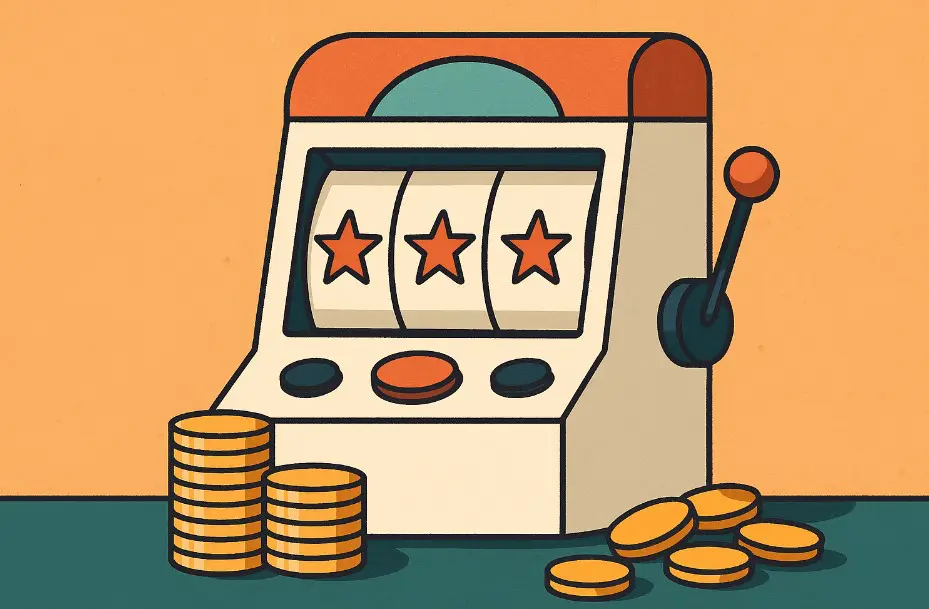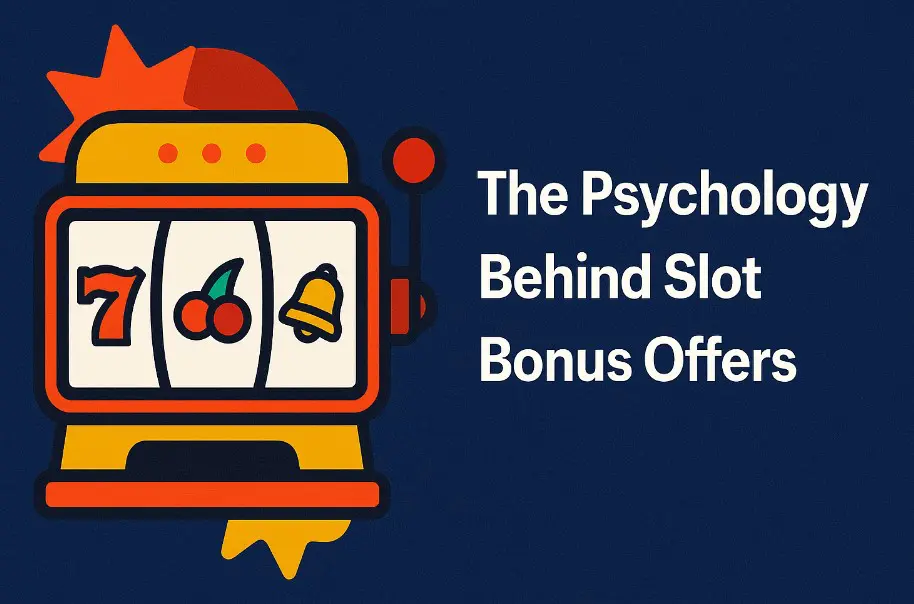Slot bonuses feel like little surprises tucked into the reels—free spins, multipliers, or quirky mini-games that pop up just when boredom might be setting in. Most players will tell you those moments are the best part of playing slots, the kind of thing that makes your pulse tick a bit faster. But here’s the twist: these aren’t random treats thrown in for fun. Every flashing light, every drawn-out reel animation, is rooted in psychology. Game designers know exactly how to tap into our quirks and biases, and they do it with precision.
Why Bonus Offers Grip the Mind
Think about the last time you saw two scatter symbols land and the third reel slowed down as if holding its breath. Even if nothing hit, didn’t you feel that little jolt of excitement? That’s anticipation, and it’s not an accident. Bonus offers blend suspense with surprise, and our brains can’t resist the mix. Psychologists call it a variable reward system. In plain words, the fact that you don’t know when the bonus will land makes you lean in harder. Like shaking a gift but not knowing what’s inside—it’s maddening and magnetic at the same time.
Reward Systems at Work
Back in the 1930s, B.F. Skinner had rats pressing levers for food pellets. When the rewards came at predictable intervals, the rats got bored quickly. When they came unpredictably, the rats pressed those levers obsessively. Sound familiar? Slot machines are essentially those levers dressed up in neon and sound effects.
And here’s the kicker: dopamine doesn’t only flood your brain when you win. It spikes when you’re waiting for the outcome. That’s why watching the reels drag out the moment before a bonus symbol hits (or misses) can feel more thrilling than the win itself.
Cognitive Biases Slot Bonuses Exploit
If you think casinos just slap together flashy graphics and hope for the best, think again. They design these games around human biases we barely notice in ourselves. For example, when a game says you can get “up to 500 free spins,” most of us latch onto that big number—even if what we actually get is a measly 10. That’s anchoring at work.
Or consider the word free. Free spins light up players’ eyes far more than, say, a small $5 cash credit, even though the value might be about the same. That’s the zero price effect. And then there’s the sunk cost fallacy: once you’ve been chasing a bonus for twenty minutes, it feels almost sinful to quit, as if you’re throwing away all the effort you’ve “invested.”
The Near-Miss Effect
I’ll admit, I’ve fallen into this one myself. Two scatters land, and that third one shows up just above the line. It’s a loss, sure, but my brain insists I was so close. Studies back this up: near misses fire up the same brain areas as actual wins. It’s cruel, really, because instead of making you walk away, it pulls you in for another spin. I remember once at a casino in Barcelona, I spent half an hour convinced the next spin would deliver the elusive third scatter. Spoiler: it didn’t.
Commitment Through Sunk Cost Fallacy
This one’s sneaky. Say you’ve been sitting at a slot chasing the free spin round for ages. Quitting feels like admitting defeat, like you wasted your time and money. That’s the sunk cost fallacy whispering in your ear. Designers know this instinct well and calibrate their math models to string players along. Bonuses appear just often enough to keep hope alive, but not so often that the house loses its edge. It’s like dangling a carrot on a stick—close enough to see, but always just out of reach.
Loss Aversion Meets the House Money Effect
Here’s a funny contradiction. On one hand, humans hate losing—far more than they enjoy winning the same amount. On the other hand, once they win, they treat those winnings as “house money,” something they’re freer to gamble with. Slot bonuses play into both. Consolation prizes soften losses, while small wins nudge players into risking more. I’ve seen friends walk away from a $100 bonus win only to pour it back into the machine because “hey, it wasn’t my money anyway.” The casino smiles either way.
Dopamine and the Rush of Bonuses
Dopamine doesn’t care whether you’ve won a fortune or a handful of credits. It’s about the chase, the thrill, the moment of almost. A bonus round magnifies this in three stages: the anticipation while the reels slow, the rush during the feature itself, and the little spark after it’s over—even if the payout is underwhelming. I remember getting 15 free spins once and cashing out with about $2.50. Rationally disappointing. Emotionally? My heart was still pounding. That’s dopamine doing its job.
Unpredictability and Variable Rewards
Predictable patterns are boring. That’s why slots lean so heavily on unpredictability. The timing of bonuses, the size of payouts, even the way animations tease a possible win—it’s all randomized. You never know if the next spin will be dead or dazzling. That uncertainty keeps players glued. It’s a bit like fishing: most of the time nothing bites, but the maybe keeps you casting the line.
The Illusion of Control

Here’s where things get cheeky. Bonus rounds often give you choices: pick a treasure chest, spin a wheel, flip a card. Feels empowering, right? In reality, the outcomes are locked in before you’ve even clicked. But the illusion of control makes the game feel personal. I’ve seen players curse themselves for choosing “the wrong chest” as if they had blown a chance at a bigger prize. That’s clever design at work.
Sensory Stimuli and Player Behavior
Casinos are masters of atmosphere. The moment a bonus hits, everything ramps up—lights flash, sounds crescendo, the chair even vibrates on some modern cabinets. These sensory cues turn minor wins into memorable events. Ask most players about their biggest slot memories, and they’ll recall the feeling—the sound of coins clattering, the reels sparkling—not the actual dollar figure they walked away with.
How Game Designers Engineer Engagement
Developers walk a fine line. They need the games to be engaging but also profitable. That means deciding exactly how often bonuses trigger, how big they are, and how dramatic the animations feel. A game with stingy bonuses loses players. A game with too many generous bonuses risks bankrupting the house. The sweet spot is engineered through endless testing. Sometimes I think of slot designers as part mathematician, part psychologist, and part stage director—setting the lights, the timing, the drama, all for maximum effect.
Responsible Gambling and Awareness
The trick is not to pretend you’re immune. Everyone feels the pull of these psychological levers. The key is noticing them when they happen. If you find yourself muttering “just one more spin” after chasing a bonus round for ages, that’s the sunk cost fallacy knocking. If you’re riding high on a small win and suddenly betting twice as much, that’s the house money effect nudging you along. Setting limits before you play—time, money, even number of spins—can give you a buffer against these nudges. And sometimes, the most powerful move is simply standing up and walking away.
FAQs on Slot Bonus Psychology
Why do slot bonuses feel more rewarding than regular wins?
Because they mix suspense, surprise, and sensory overload. Even when the payout is modest, the experience hits harder than a plain line win.
Do near misses really affect player behavior?
Absolutely. They light up the brain’s reward circuits, tricking you into believing a win is just around the corner.
Is the illusion of control in slot bonuses deliberate?
Yes. Interactive features like treasure picks or wheels create the feeling of choice, even though the outcome is already decided.
Can understanding the psychology behind bonuses prevent overspending?
Awareness helps. If you recognize the biases at play, you’re less likely to fall for them. Pair that with clear limits, and you’ve got a solid defense.
Why do casinos offer so many types of bonuses?
Different mechanics appeal to different instincts. Some players love pick-and-win games, others chase free spins. Variety keeps everyone hooked a little longer.


